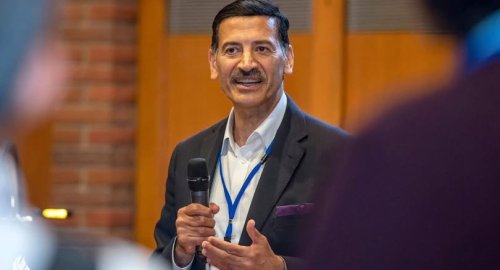
Quitting smoking reduces cancer risk at any age, says study

- 8-02-2024, 10:21
INA- sources
Stopping smoking at any age helps to reduce the risk of cancer, according to a major study, which found the most substantial drop in cancer risk came after the first decade of stubbing out.
The chances of developing cancer halved in people who quit for at least 15 years, compared with those who continued to smoke, with the risk from lung cancer falling further and faster, particularly in those who quit before middle age.
Researchers analysed medical data from nearly 3 million Koreans who had health examinations from 2002 onwards and recorded cases of cancer, including lung, liver, stomach and colorectal tumours until 2019. Over the course of the study, nearly 200,000 participants received a cancer diagnosis.
“Regardless of age, quitting smoking has been shown to reduce the risk of developing cancer, especially lung cancer, with early cessation before middle age leading to significant reductions,” said Dr Jin-Kyoung Oh, who led the study at the National Cancer Center near Seoul.
After an average follow-up of 13 years and five months, the risk of lung cancer among quitters fell 42%, with smaller falls of 27%, 20% and 14% recorded for liver, colorectal and stomach cancers respectively, compared with those who continued smoking. Details were published in Jama Network Open.
Cancer causes more than a quarter of all deaths in the UK each year, with lung cancer by far the most common. Smoking causes at least 15 different cancers, affecting the lungs, bladder, stomach and bowels and organs, such as the kidneys and liver. Tobacco is the largest preventable cause of cancer and death in the country.
According to the study, smokers who quit before the age of 50 had their risk of lung cancer fall 57% over the follow-up period compared with those who continued to puff. Those who quit at 50 or older experienced a 40% reduction in lung cancer risk over that time.
“Quitting smoking, no matter your age, can have significant health benefits,” Dr Oh told the Guardian. “Individuals who quit smoking after middle age had a 40% lower risk of developing lung cancer compared to those who continued smoking. Don’t think it’s too late. We encourage you to consider starting your journey to quit smoking.”
The development of cancer is a multi-stage process, with DNA mutations mounting up until one or more cells are damaged in a way that leads them to replicate uncontrollably, said Robert West, professor emeritus of health psychology at University College London and an expert on addiction. The further the smoker is along that pathway when they stop, the greater the chance they will end up developing cancer.
“This study confirms two crucial facts,” West said. “One is that it can take many years for the risk of cancer to decrease relative to continuing smoking. The other is that the decrease is greater for those who quit at a younger age.”
“For smokers, this shows how crucial it is to stop smoking as young as possible. There is a benefit at every age but, the younger smokers can stop, the more of their lives they get back,” Prof West added. “The way out of smoking is clear: try to stop at least once a year and make use of evidence-based specialist stop-smoking support at every quit attempt rather than trying to go cold turkey.”
Malcolm Clark, senior prevention policy manager at Cancer Research UK, said: “Smoking remains the leading cause of cancer, causing around 150 cases across the UK every single day – and the majority of people who smoke have tried to quit.
“It’s never too late to stop smoking, but people need support to help them quit. That’s why we support the UK government’s increased funding for stop-smoking services and the upcoming legislation to change the age of sale of tobacco. If implemented, this could help stop the next generation ever becoming addicted to tobacco.”
source: The Guardian
Iraqi professor wins knighthood from British King Charles III
- International
- 08:48
- Sport
- 08:45
Iraq vs Saudi Arabia match kicks off, Arabian Gulf Cup 26
- Sport
- 24/12/28
Real Madrid becomes Arnold's new home
- Sport
- 24/12/28
Globe Soccer Awards 2024: all the nominees
- Sport
- 24/12/27
CBI: We have achieved a great achievement in abroad remittance
- Economy
- 25/01/01












